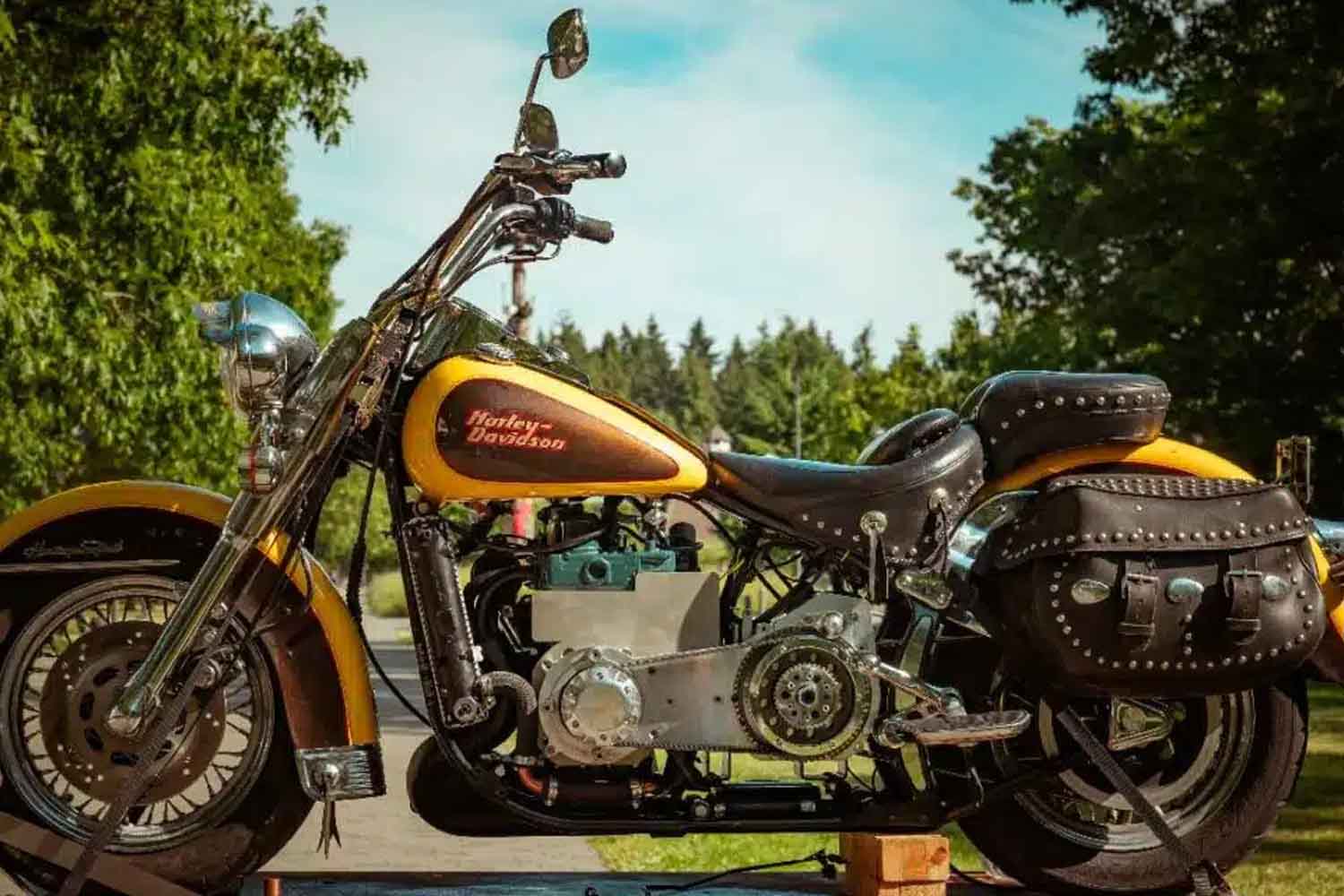A Canadian student rebuilt a Harley-Davidson to run on biodiesel from used cooking oil, cutting emissions by 74% and sparking a conversation about cleaner, practical fuels.

©Alex Jennison / James Wilson
A vegetable oil once used to fry French fries can now power a Harley-Davidson. And no, this isn’t a quirky lab stunt. It’s the real-world project of Alex Jennison, a student at the University of British Columbia. He stripped down and rebuilt a 1999 Heritage Softail, swapping in a diesel engine designed to run on waste cooking oil—some of it collected straight from the university campus kitchens.
The goal? To show that biofuels work in practice, even in something as heavy and demanding as a Harley. Right now, Alex is riding down the U.S. West Coast, covering more than 1,240 miles (2,000 km) on a bike powered by kitchen scraps.
A Harley rebuilt in 12 months with a 3-cylinder diesel
Alex didn’t pick his Harley at random. The 1999 model was the last with a separate engine and gearbox, a detail that made modifications far more manageable. Along with his team, he tore the motorcycle down and rebuilt it around a three-cylinder Kubota diesel engine, a powerplant usually found in small tractors and work vehicles.
It wasn’t a weekend project. It took a full year, countless late-night trials, and technical support from the university’s engineering department to adapt the system to Canada’s harsh winters. The chosen fuel is biodiesel made from used vegetable oil, converted through a simple chemical process already common in farming and some industrial sectors.
The outcome is a bike that starts up reliably, handles long rides, and runs on fuel that would otherwise end up in restaurant grease traps.
74% less CO₂, without cobalt or lithium
The environmental impact is striking. While this Harley isn’t zero-emissions, it cuts carbon dioxide output by 74% compared to a traditional diesel vehicle.
And unlike electric vehicles, it doesn’t depend on batteries or on critical materials such as cobalt, copper, or lithium—resources tied to hidden environmental and human costs. Jennison points out that in the Democratic Republic of Congo, where most of the world’s cobalt is mined, “workers die every week in the mines.”
With this project, Alex is determined to prove that there’s a different path forward for transport—one that doesn’t just swap fossil fuels for another form of extraction with its own consequences.
A resource hiding in plain sight
Biodiesel from waste cooking oil isn’t brand new, but it remains marginal. According to IFP Énergies nouvelles, in 2023 it made up just 4.8% of road fuels worldwide.
Still, Jennison insists it’s an underused solution already at hand. “Restaurants pay to get rid of used oil,” he says. “That same oil could be treated and used to fuel trucks, tractors, and service vehicles—the kinds of transport where electric power just isn’t practical yet.”
His road trip includes stops at 15 dealerships, 7 universities, and dozens of local communities. It’s not a marketing campaign, but a way to show, mile after mile, how waste can be turned into power—with no glossy promises, just a working Harley on real roads.
Source: GoFundMe
